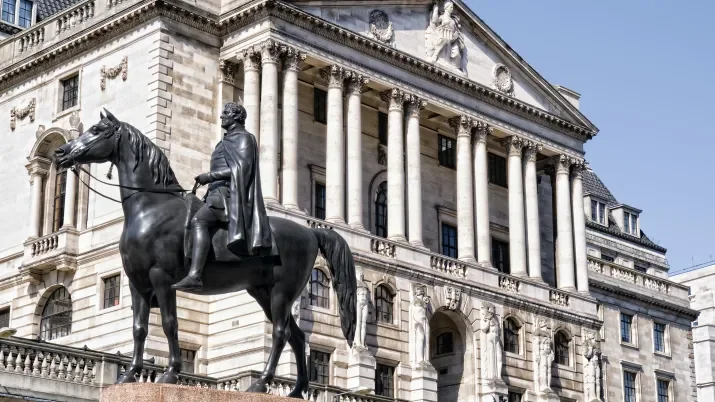AT1s: to call or not to call – that is the question
There was an article in Bloomberg yesterday, regarding proposals floated by an industry participant, aimed at changing the way in which AT1 bonds are or are not called. These are just opinions of a particular issuer, but as it has generated interest, we thought we would give our thoughts.
The article proposes that calls should only to be allowed on rate reset dates, that at least 90% of the size of the called bond must already have been issued, that it must be an issue-specific decision - with other AT1 issues from the same issuer being irrelevant - and that the call should only be allowed if the new issue spread does not exceed the old note’s reset spread by more than 25 bps.
The purpose of these rules would be that banks are not then “forced” by markets to call bonds in uneconomical terms. In the article, it cites the example of Credit Suisse, which called an AT1 and replaced it with a more expensive one, some quarters before it collapsed. It is also highlighted the general case of subordinated debtholders being made whole, while taxpayers footed the bill in the aftermath of the global financial crisis. Additionally, it is mentioned these rules would allow calls to not contain any information about the health of the issuer.
Without wishing to be overly critical of the author, we are struggling with the logic of these proposals and would also question how they would be implemented in practice.
Firstly, and very importantly, regulators now have ample powers to prohibit a bank from calling an AT1 bond when they think it wouldn’t be prudent. They also have a lot of discretion in setting capital ratios for banks under their jurisdictions, with some of the buffer capital requirements being issuer specific. Should the regulator opine that its banking system needs to be better capitalised, we think there are much more efficient ways of addressing this, such as increasing capital requirements and CET1 capital, rather than disallowing a bank to optimise its issued debt. There have been two AT1 issuers in Europe that have seen their AT1 debt written off, Credit Suisse and Banco Popular, and neither, in our opinion, were in trouble because of executing uneconomic calls. Trying to ban market signals through preventing calls in AT1s would have no effect on a bank reaching its point of non-viability. It could be argued that a much clearer signal of this would be by how much senior spreads have widened, as these represent a much larger share of their balance sheet.
Another important point is the definition of “uneconomical”. An arbitrary choice of an additional 25 bps in spread seems somewhat odd. By honouring calls, issuers gain access to lower spreads in their future issues. Part of the spread investors get when buying an AT1 or RT1 bond, is compensation for the non-call risk. If the issuer can reduce that risk by calling bonds at their first call date, then the non-call premium would be lower, resulting in a lower overall cost of capital in the future.
Under these proposals, a perfectly healthy issuer would be banned from calling an AT1 if they had to pay 26 bps more spread in a new AT1 compared to the one they intended to call. We find it hard to see how that would be an economical decision if their future cost of capital increases as a result. The proposals also assume that banks need to replace an AT1 bonds if they call it. However, many European banks have excess capital, which is why we have seen so many share buybacks, with capital being returned to investors. Should banks be allowed to do this, but be prevented from calling AT1s? Both buybacks and AT1 calls are already controlled by regulators, which allows them to prevent capital leaving the bank when it shouldn’t.
Lastly, the implementation of these rules would be difficult. What would happen if a bank sold a business line and they do not need as much AT1 capital? They might decide to call an AT1 and only issue 50% of the notional. They could not do that under these rules. What if an issuer decides to call an AT1, originally issued as a non-call five-year bond, and replace it with a non-call 10-year bond? Does the 25 bps rule apply? What if they want to call a dollar bond and replace it with a euro bond. What if a bank, in the spirit of being economical, wants to call an AT1 bond and issue a replacement when conditions are more favourable? Shouldn’t they be allowed to do that if they are complying with their capital requirements? Shouldn’t banks be allowed to boost capital levels through retained earnings, rather than using profits to pay dividends, if that is more efficient than keeping an AT1 outstanding?
Regulators already must approve the call of AT1 bonds, and other callable debt for that matter, and have the power to turn off coupons – we don’t see how removing this power, in exchange for the set of hard rules, adds to the capital adequacy of any bank. If the author feels that regulators are too lenient with banks and with the amount of capital banks are required to hold, that is a different matter entirely and not one that will be solved through a set a hard rules on AT1 calls.
To be clear, we don’t think that AT1s should be automatically called, and have made this point repeatedly in our blogs. Market conditions should play a big part in the decision to call, and we think it does – for example, some AT1s were not called in the early days of the pandemic because reissuing would have been too costly and difficult. This was the correct decision by the banks in question and there is no evidence that those banks paid a penalty to issue later. Investors accepted the decision and understood the reasons behind it.
We will have to wait to see if these proposals will gain traction, although it is interesting to have the views of the head of external funding from an issuer with a lot of callable debt outstanding.
In closing, we think regulators will continue their efforts to make banks safer. We do not think, however, that these proposals are consistent with that objective, and they might bring more harm than good. Consequently, we think it is unlikely these will be endorsed by regulators, proof of which is the fact that AT1 prices did not move because of the Bloomberg article. In our opinion, the reaction function of issuers when it comes to call decisions, and the regulator’s when it comes to approving them, remain unchanged, which means that we expect a majority of AT1s to be called at their first call date in the future.


